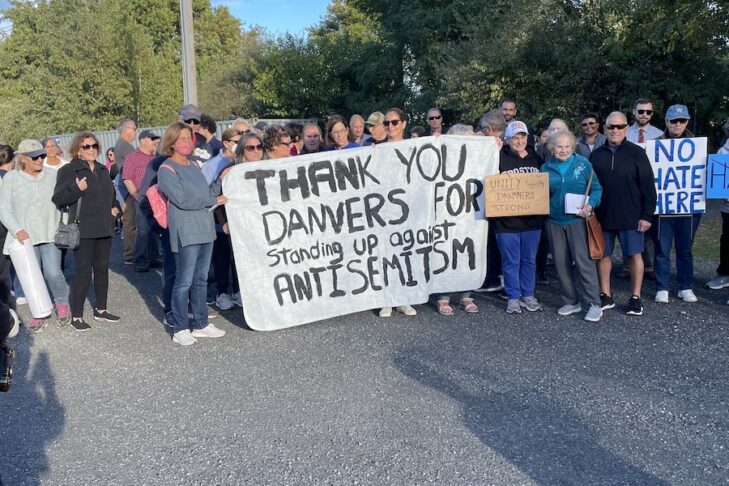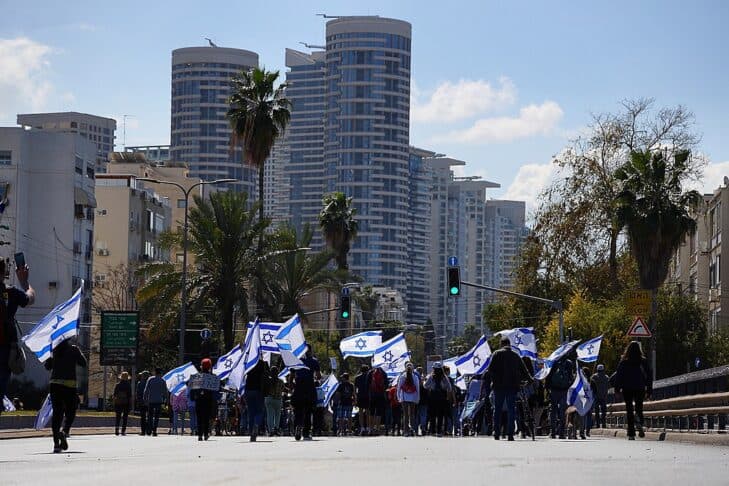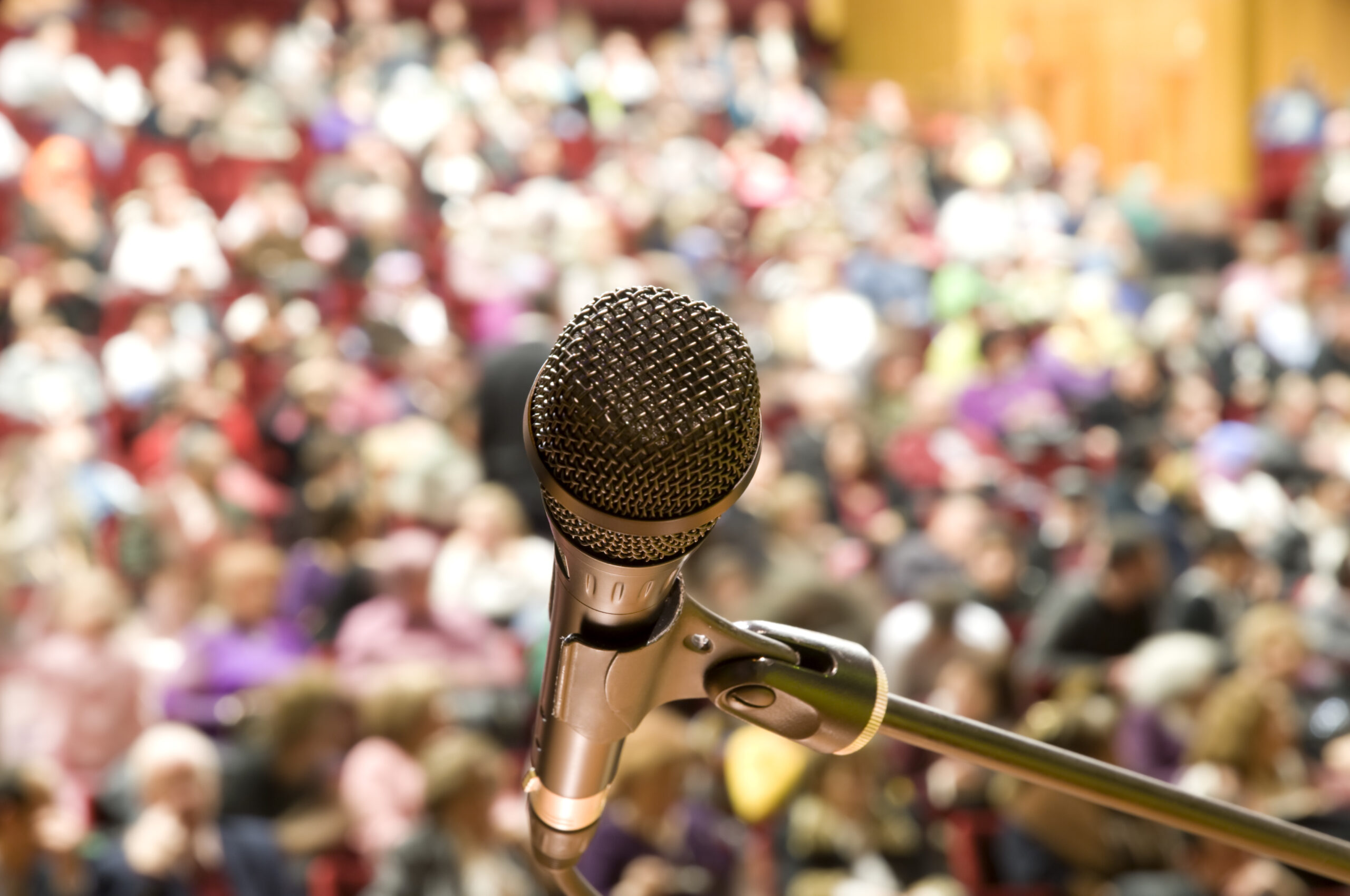By Rich Tenorio
Experts in Greater Boston and the North Shore are concerned about increasingly widespread instances of antisemitism such as swastikas painted on sidewalks, or hateful messages over highway overpasses. Yet they largely hesitate to use the word “normalization” to describe the phenomenon.
“I think there’s a difference between ‘widespread’ and ‘normalization,’” said Jeremy Burton, executive director of the Jewish Community Relations Council of Greater Boston. “‘Normalization’ would imply that public civic leaders, leaders of the institutions, are accepting it or ignoring it.” Instead, he noted, in the wake of antisemitic messages in Lawrence, Dover and New Hampshire in February 2023, “My impression is that local school districts, local magistrates and school officials are speaking out and condemning it.”
Such condemnation occurred following the incident at Lawrence’s Valley Forum Ice Arena. After the North Andover High School boys’ hockey team played a game at the rink, a swastika was reportedly found etched into a locker room that the team had used. The North Andover High School principal and district superintendent criticized “[words] and symbols of intolerance and hate” and invited a Holocaust survivor to address the high school on March 22, 2023.
Burton qualified his remarks by adding: “Not to say there’s no problem of normalization in our society. There is. Part of the challenge is that many people in our society seek to be provocative, seek to agitate, seek to cause fear. There definitely is normalization of antisemitism in our society. For example, somebody in public life says or does an antisemitic thing [and] treats antisemitism as if they’re doing nothing wrong. When you have an active neo-Nazi being invited to dinner with a former president of the United States, it’s one example of normalization.”
However, he said, “I’m not sure a swastika in the schools counts for normalization. It does not make it any less tolerable. It’s becoming widespread as antisemites are inspiring each other to stoke our fears.”
“I don’t like the word ‘normalization,’” said Debbie Coltin, executive director of the Beverly-based Lappin Foundation. “It makes it sound normal. There is nothing normal [about it].”
She and fellow community leaders on the North Shore are disturbed by numerous instances of antisemitic messages and images in the area. In the fall of 2022, in the wake of the 11th anniversary of the 9/11 terror attacks, antisemitic and racist messages were displayed on highway overpasses in Danvers and Saugus—including a message blaming Jews for 9/11. More recently, in January 2023, a swastika was painted on a Swampscott sidewalk near the town center.
“I think there’s a normalization in a sense that it’s happening more,” said Rabbi Alison Adler of Temple B’nai Abraham in Beverly.
She added, “I think people understand when it’s antisemitic—when it’s a swastika, it’s obvious.” However, she said that some antisemitic messages are subtler for the larger community to detect, and that there is “a need to be educating and having more conversations.”
Both Adler and Coltin played key roles in community gatherings in the wake of the hateful messages last fall. In Beverly, the town Human Rights Committee created an educational program on antisemitism that Temple B’nai Abraham agreed to host, with the event attended by both Jews and non-Jews. Adler and Coltin were also instrumental in an event in Danvers where town residents and members of the surrounding area came together to protest hate speech.
“I said, ‘Why don’t we take back the bridge?’” Coltin recalled. “Let us have the last word; don’t let the white supremacists have the last word.”
The result was a march of people from Danvers and neighboring municipalities, with a goal of reclaiming the bridge for tolerance.
“There were signs protesting against the antisemitism,” Coltin said, with other signs bearing “messages of love and unity, all kinds of things.”
Although this represented a positive step, a swastika was reportedly painted on a sidewalk in nearby Swampscott just a few months later. Once again, a community came together to protest, in this case with a rally later that month.
“It was very well-attended,” said Rabbi Michael Ragozin of Congregation Shirat Hayam of the North Shore, noting “support from the local political officials,” including Essex County District Attorney Paul Tucker and State Rep. Jenny Armini.
Representatives of local fire and police departments attended as well, which Ragozin noted in making a distinction between the United States of today and a previous ominous moment in history.
“Kristallnacht in 1938 [occurred with] full police protection,” he said, whereas today, “the police have got our back. We’ve got a great relationship with the Swampscott Police Department, above and beyond what’s to be expected. I think they do a phenomenal job.”
Rich Tenorio covers antisemitism news for JewishBoston.com. His work has appeared in international, national, regional and local media outlets. He is a graduate of Harvard College and the Columbia University Graduate School of Journalism. He is also a cartoonist. Email him at rich@jewishboston.com.



